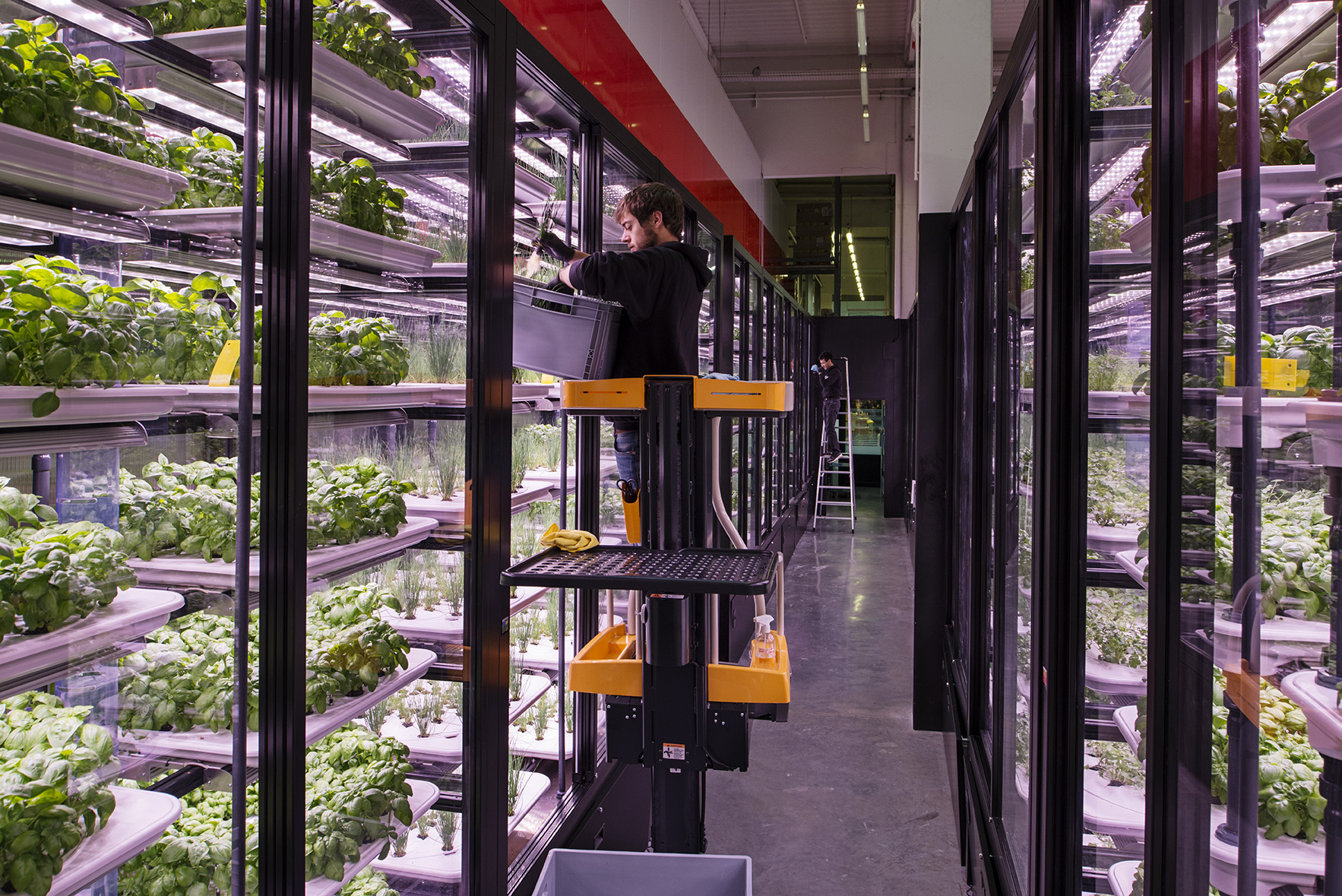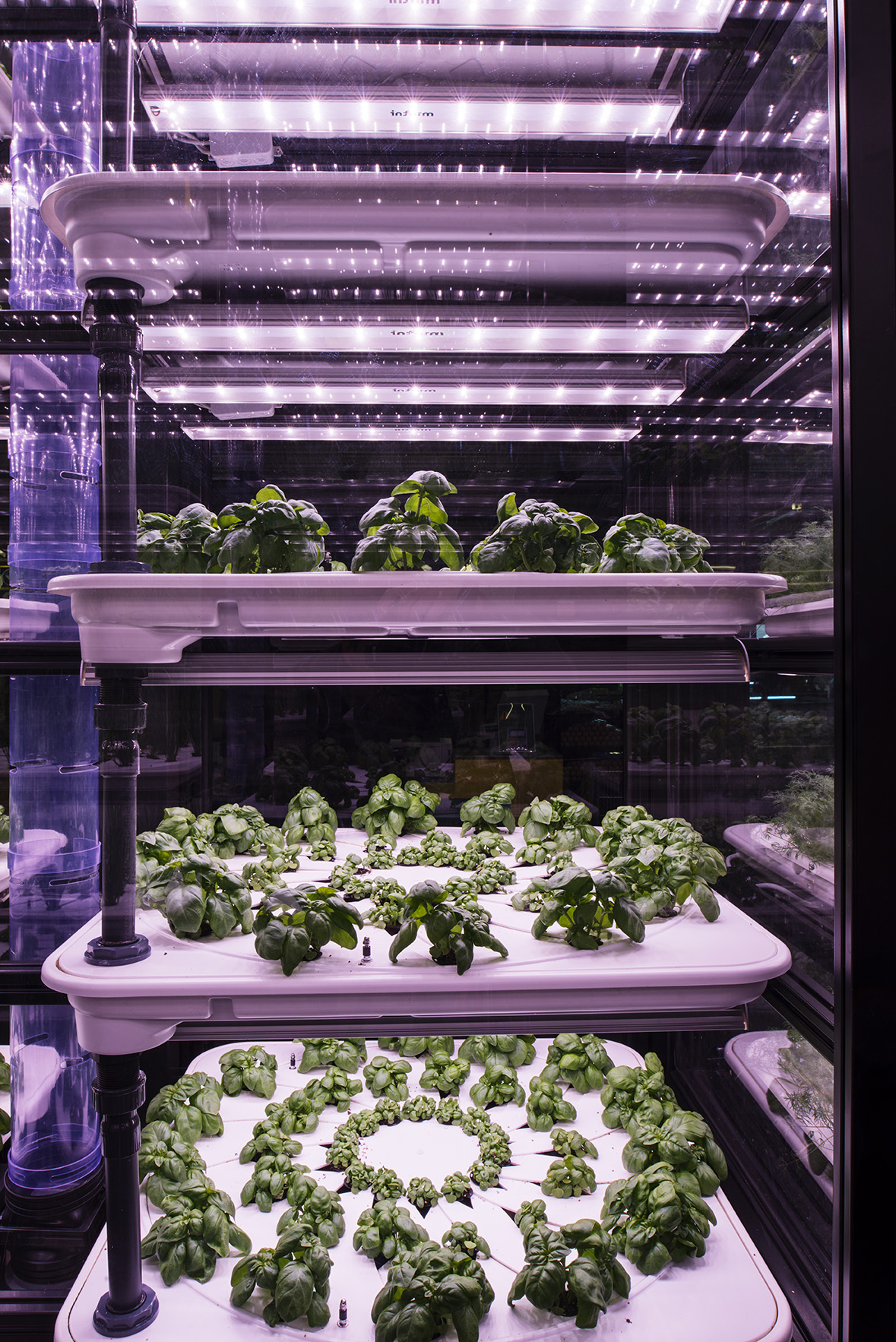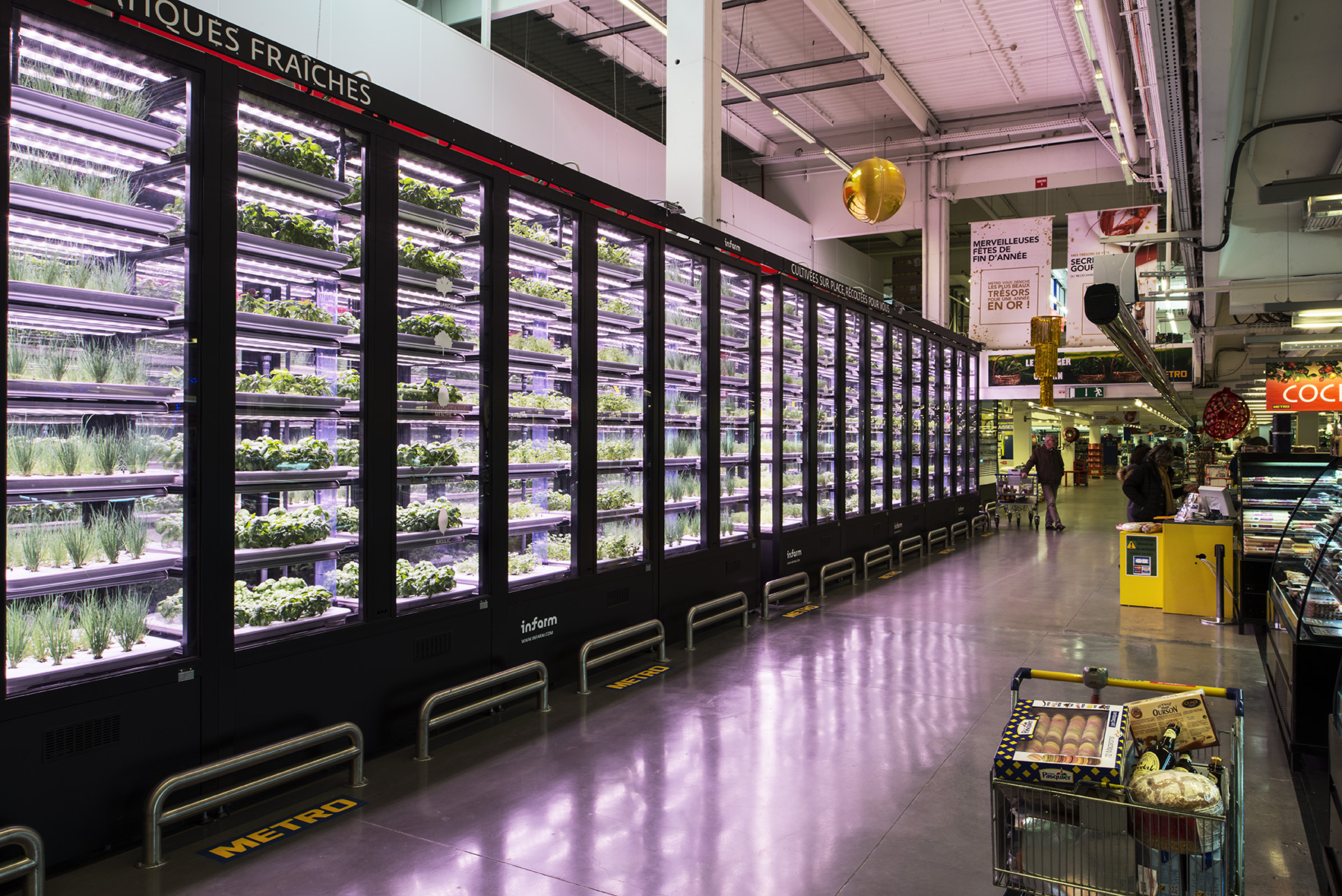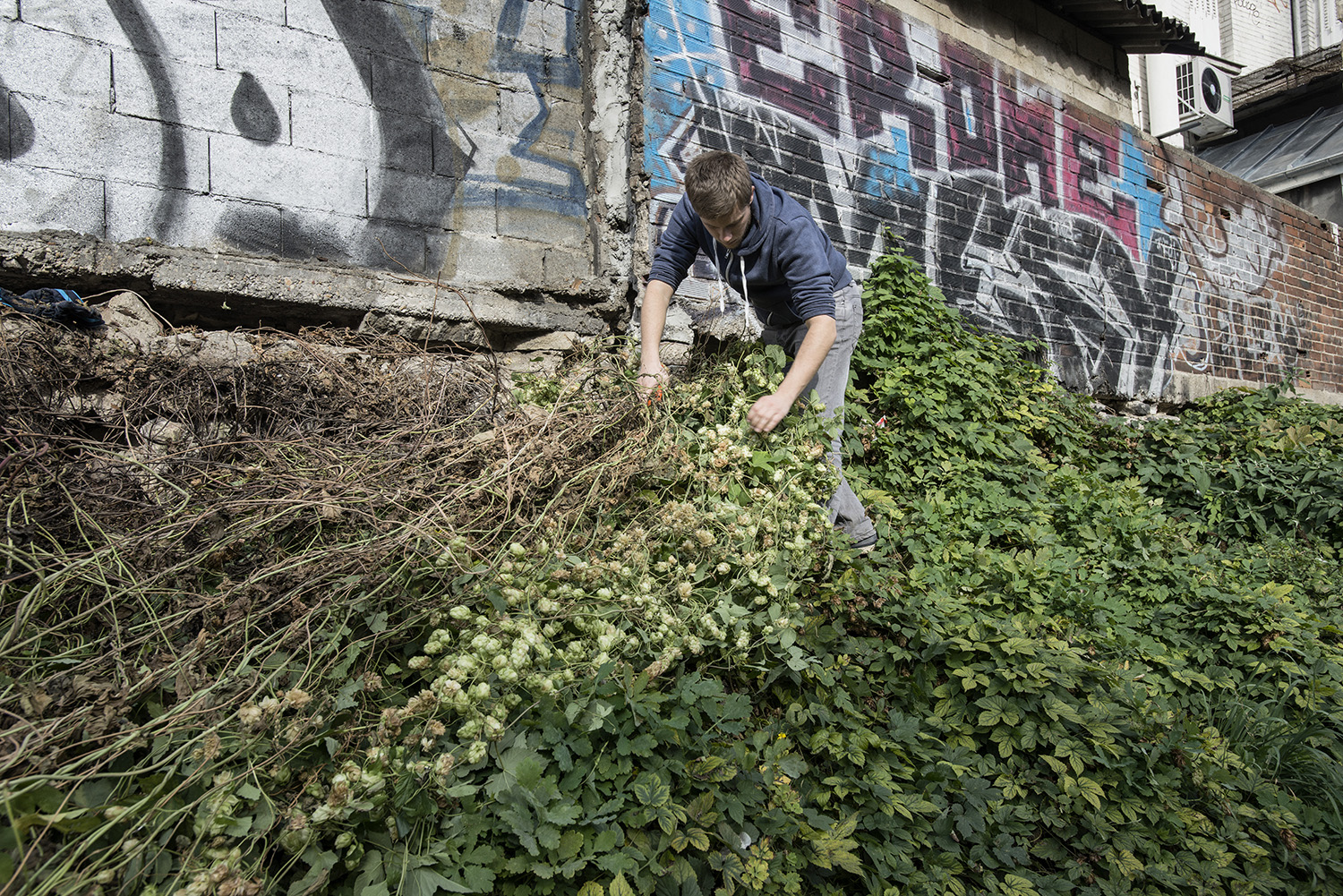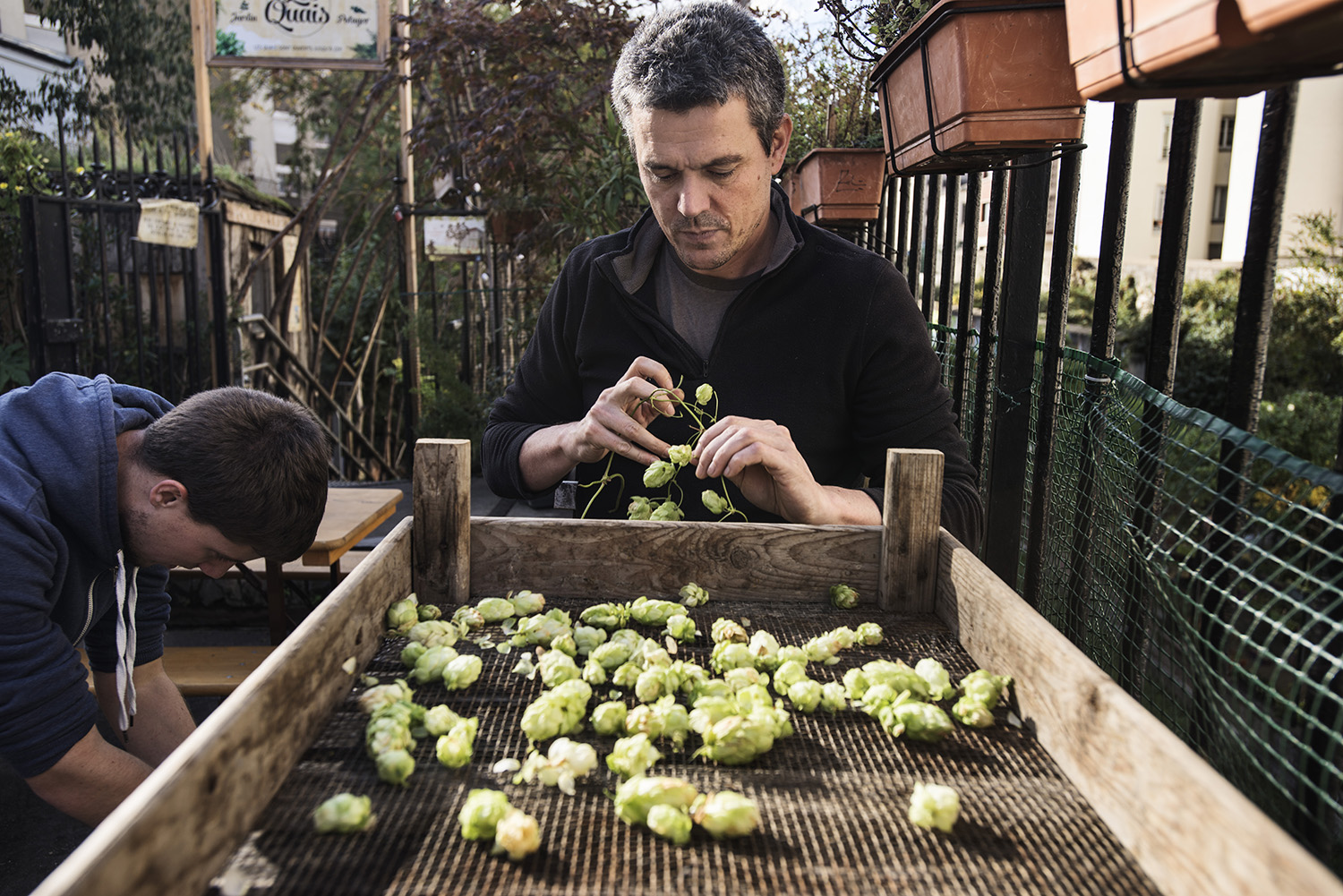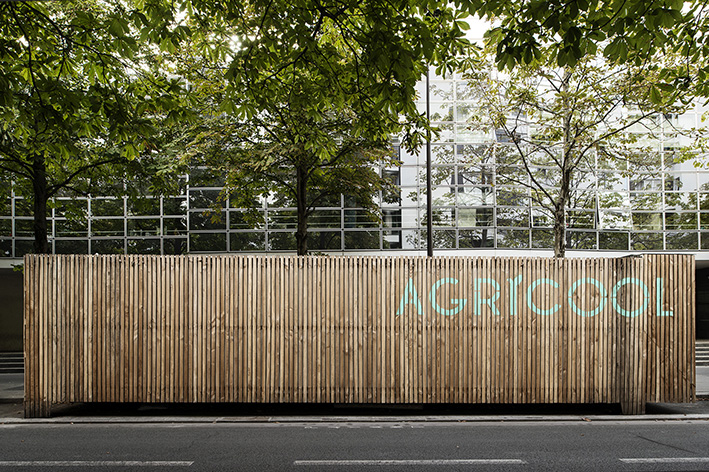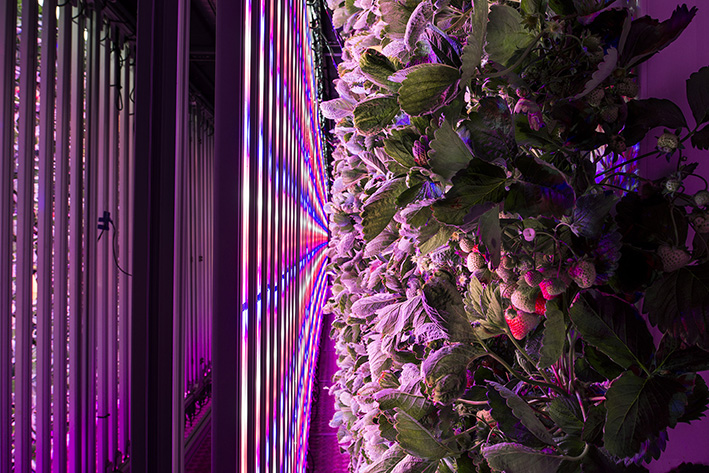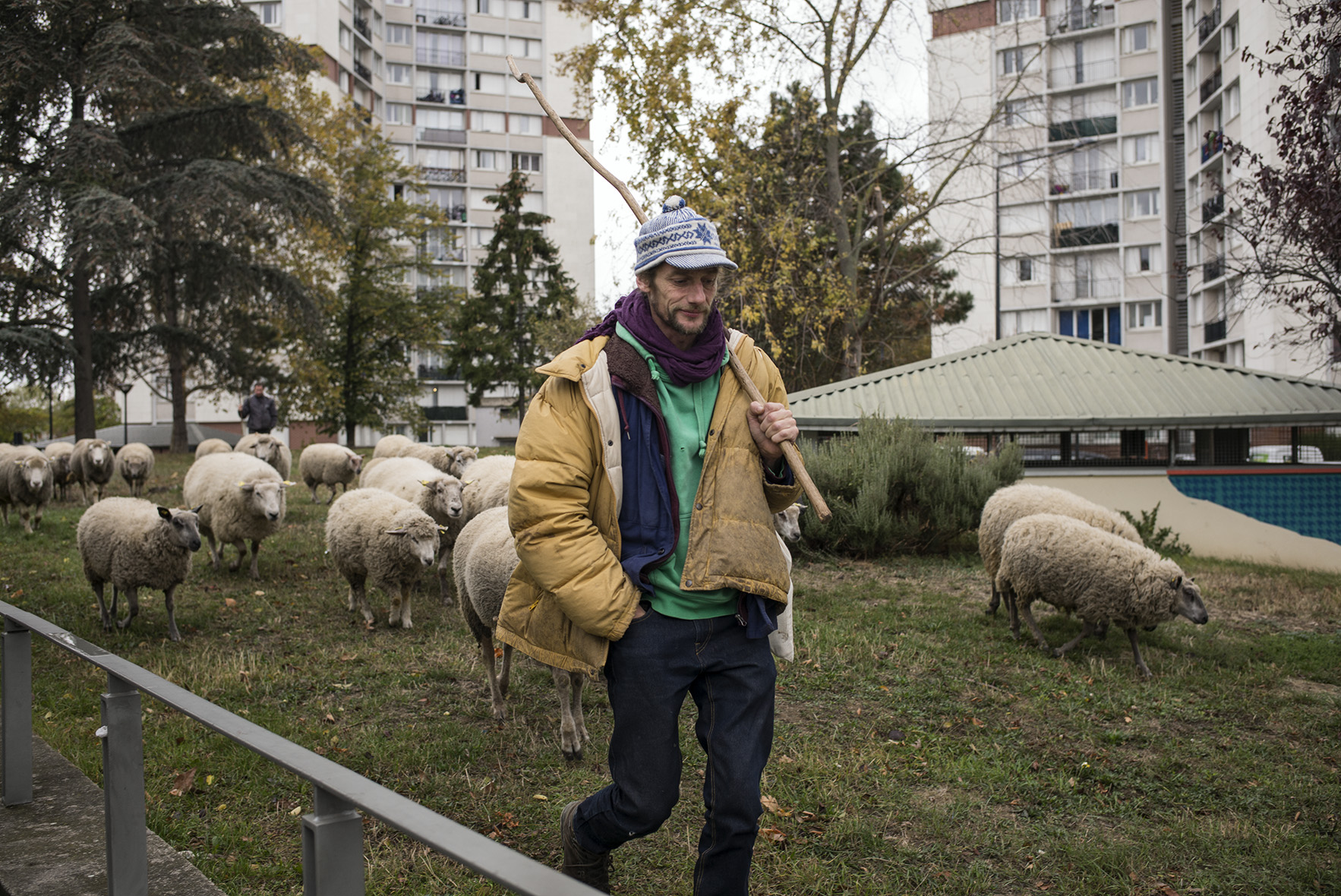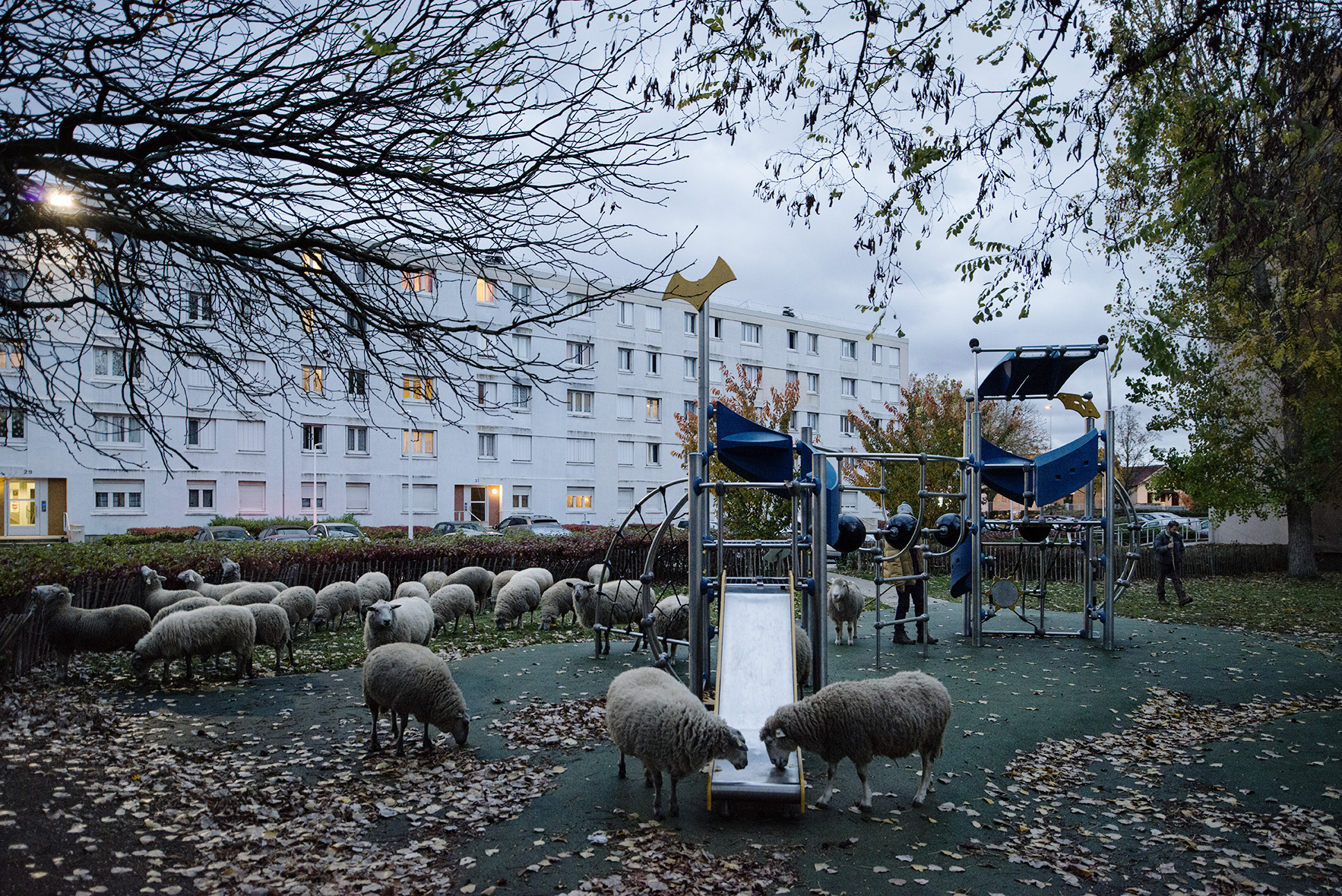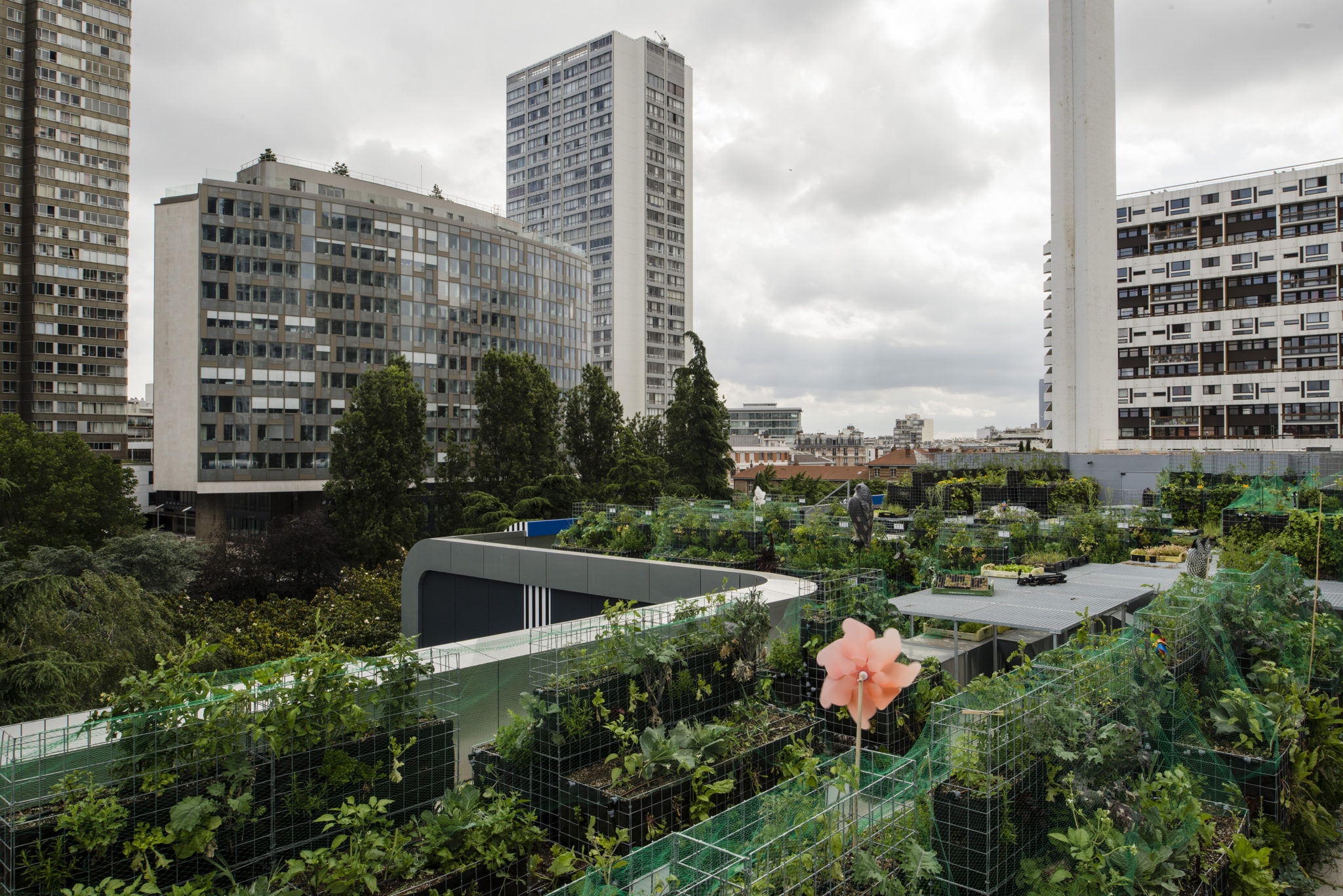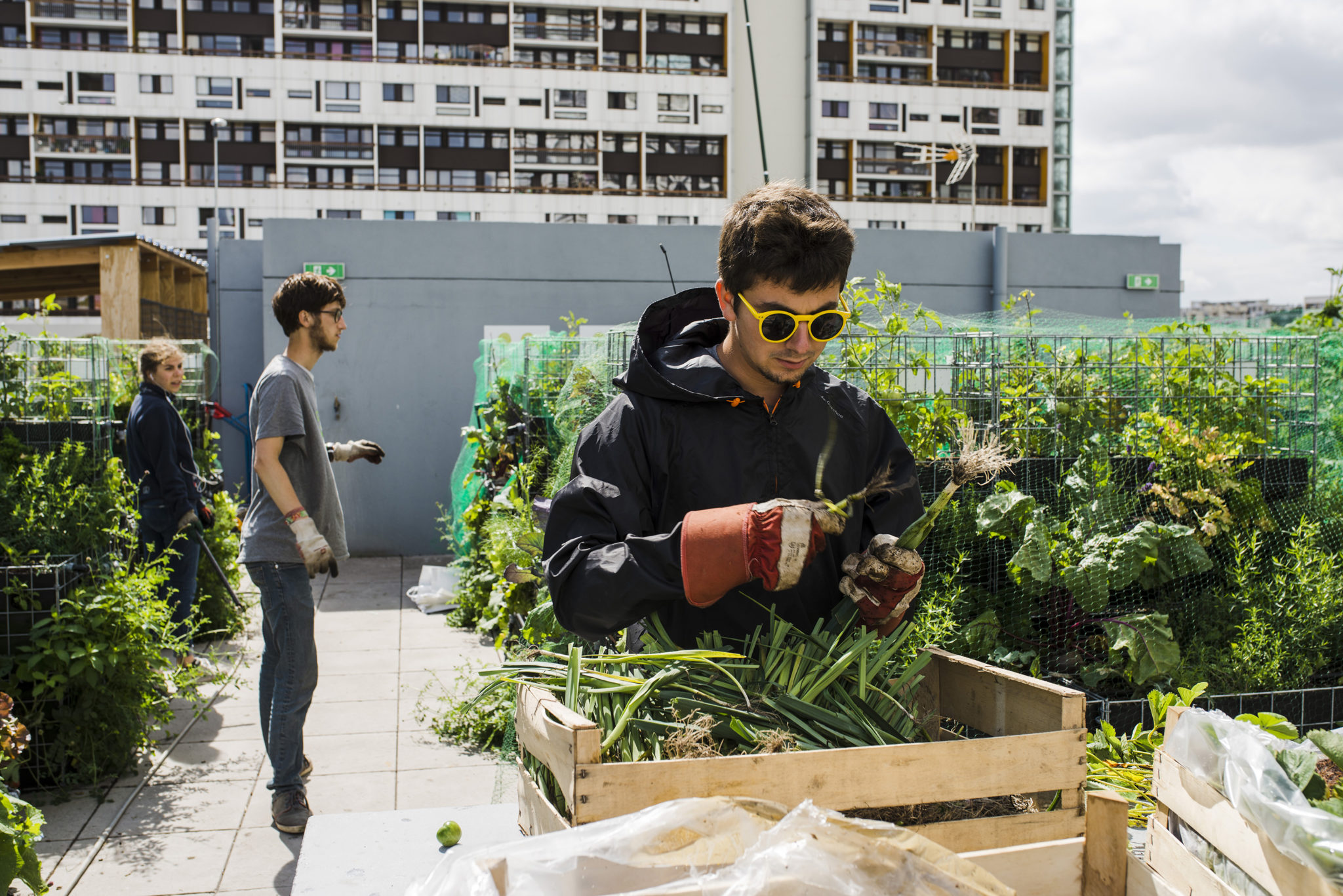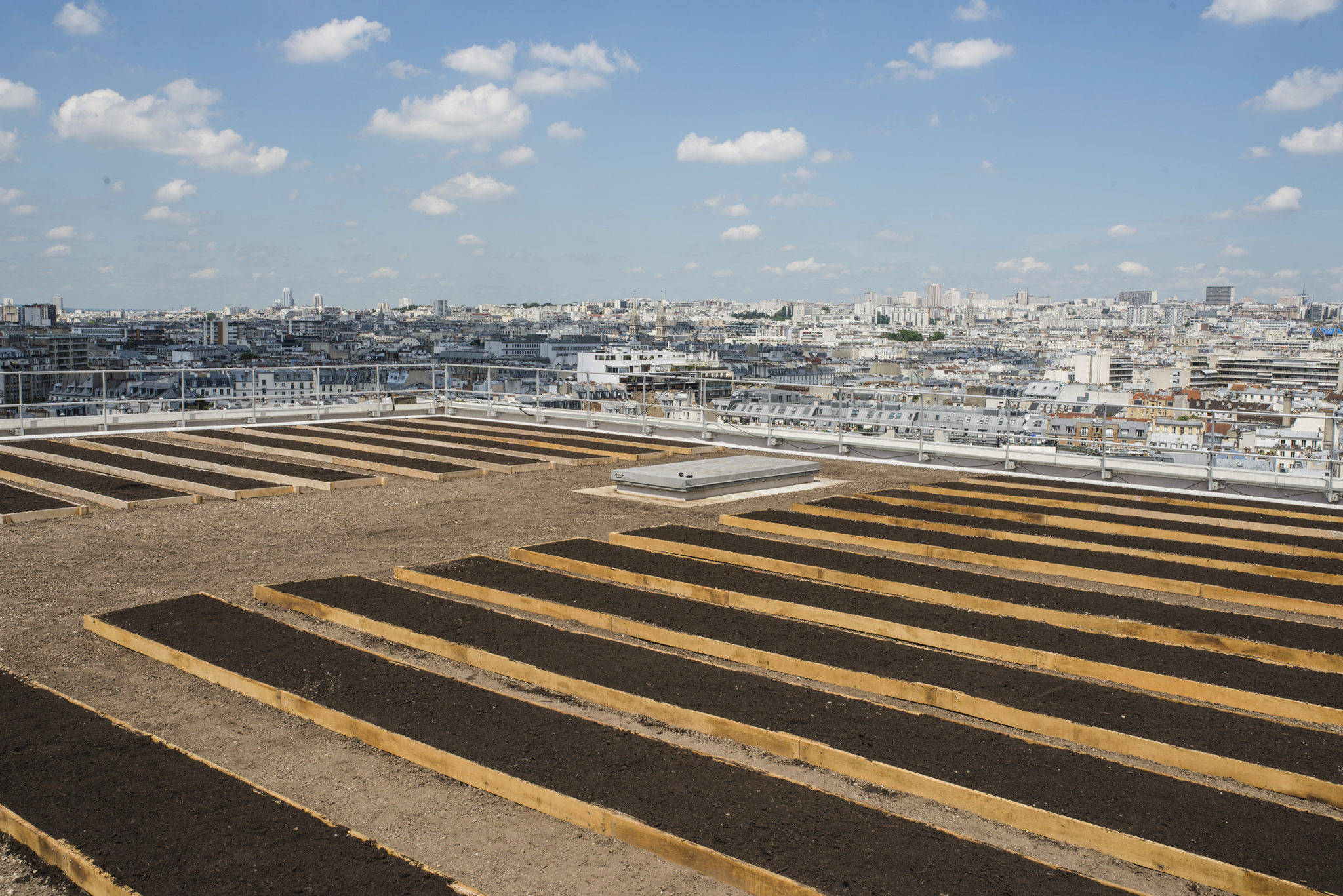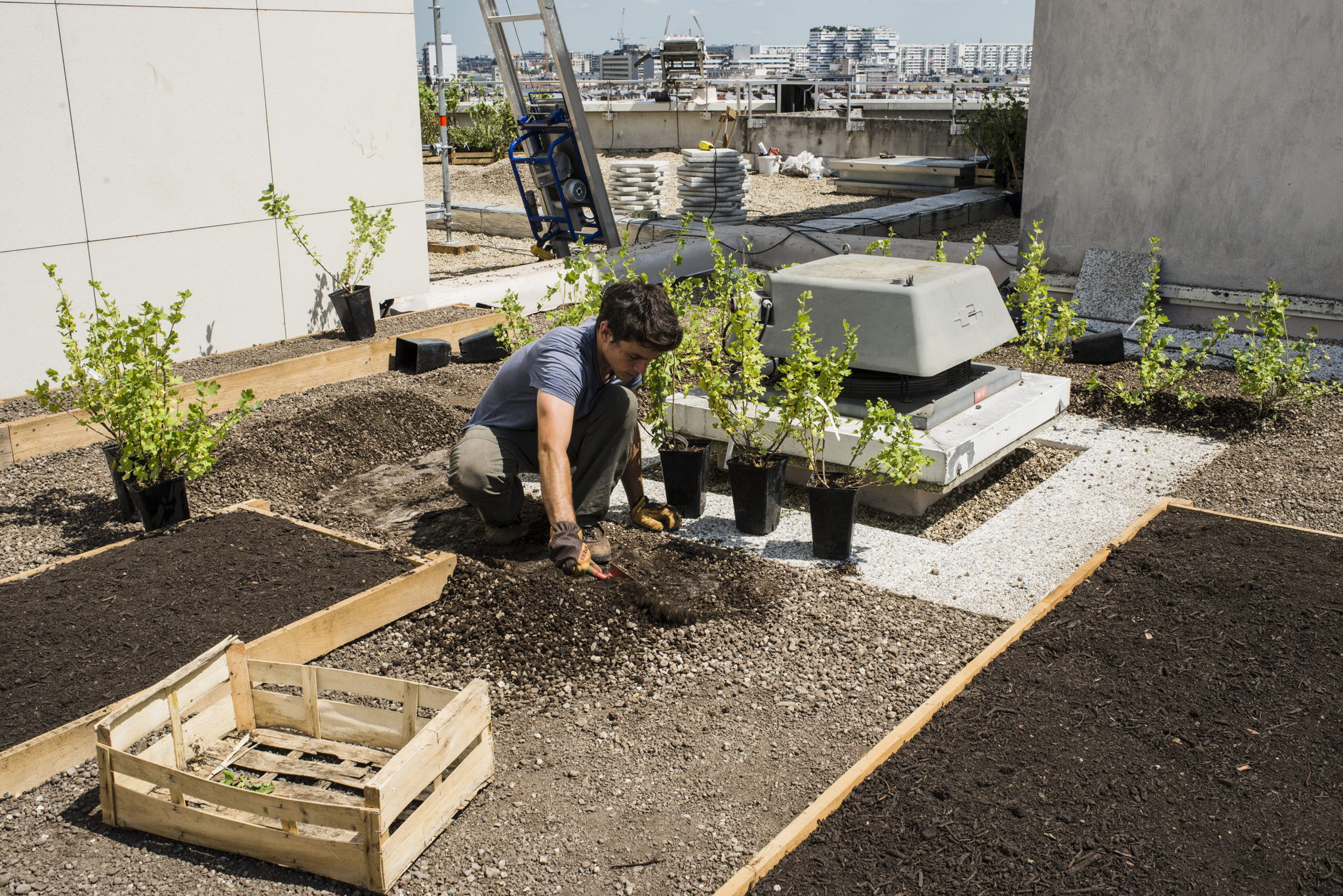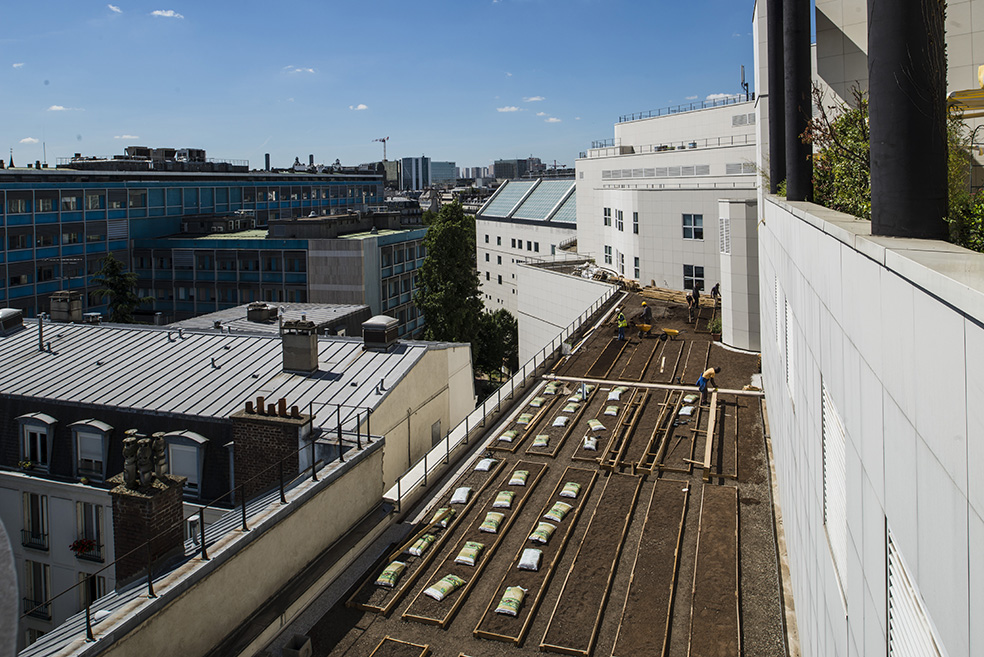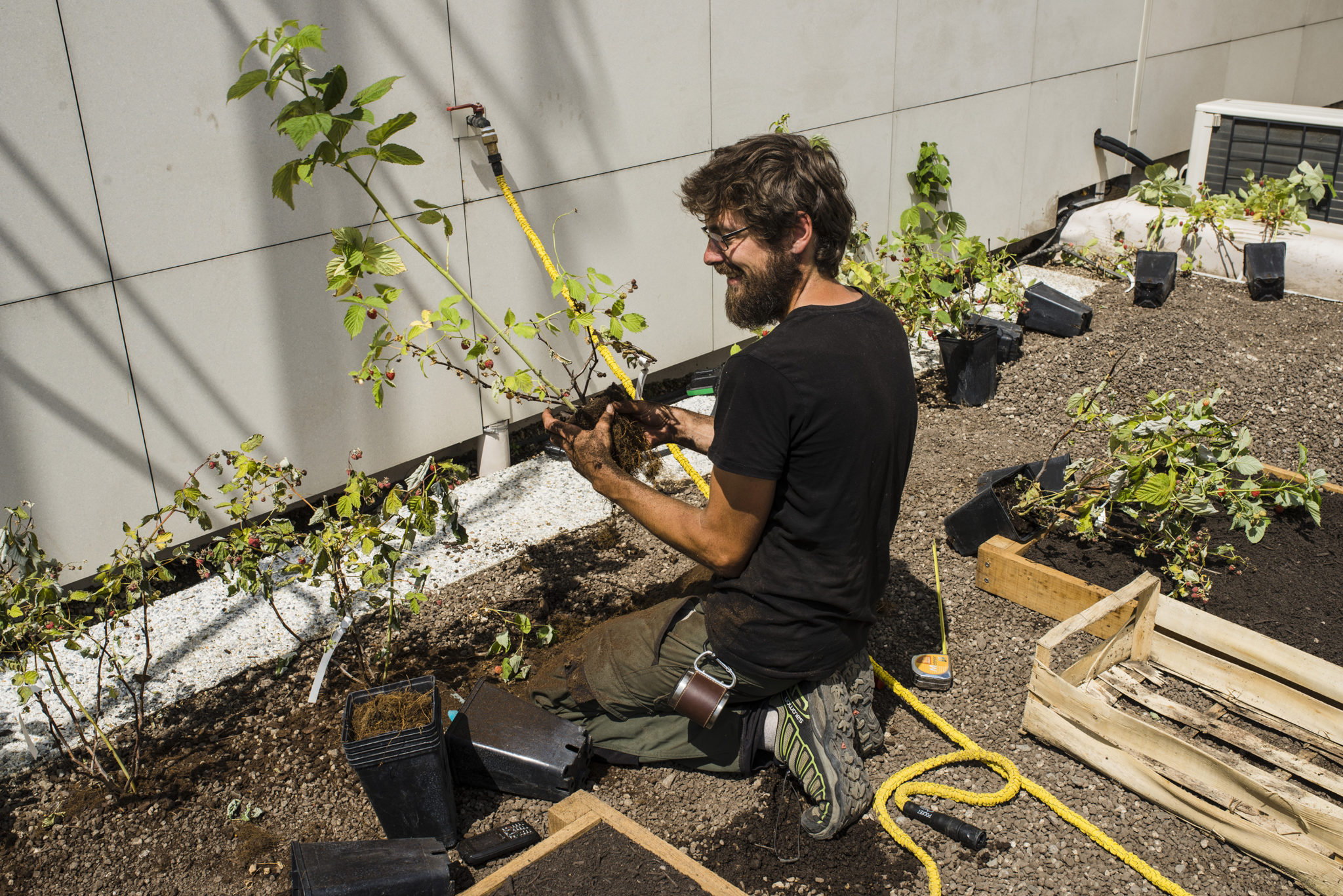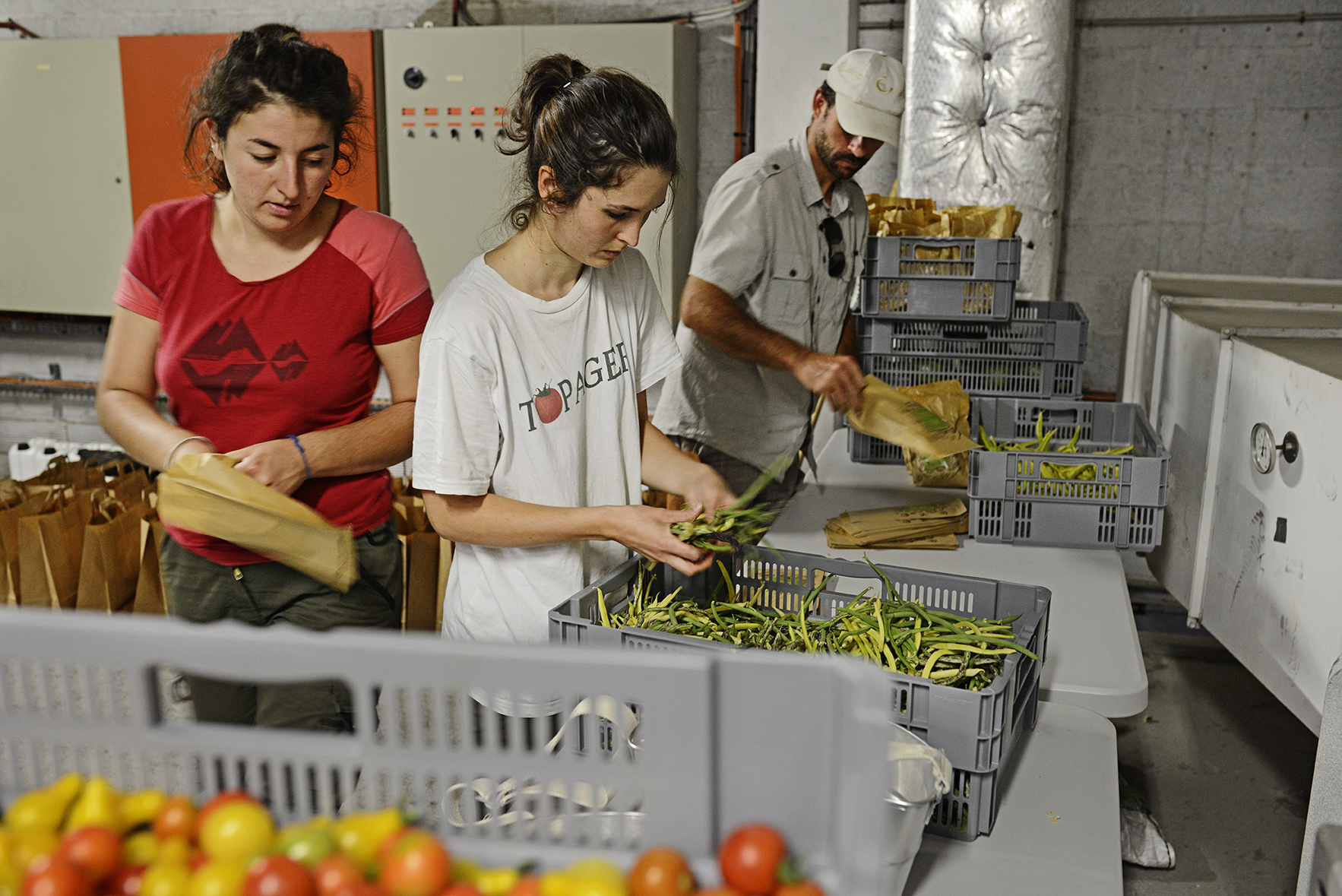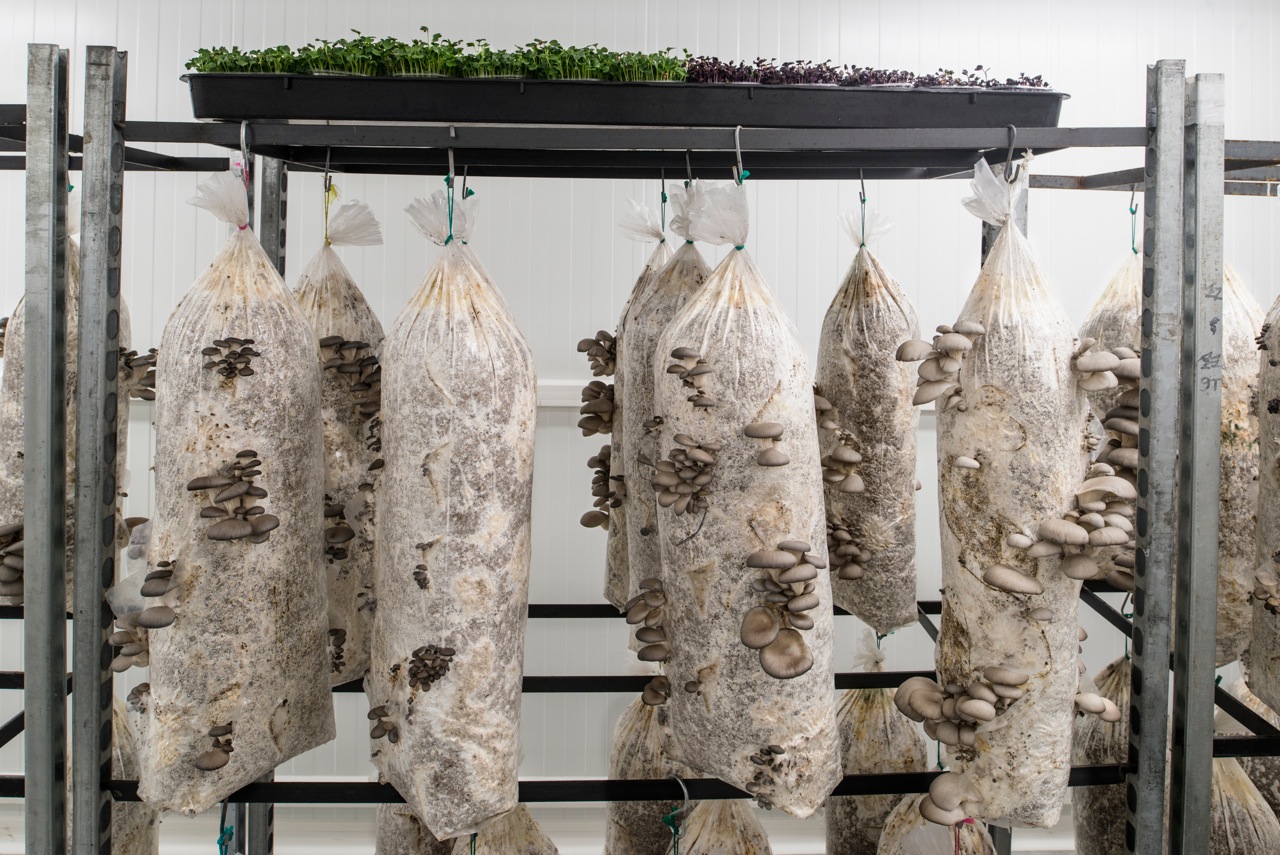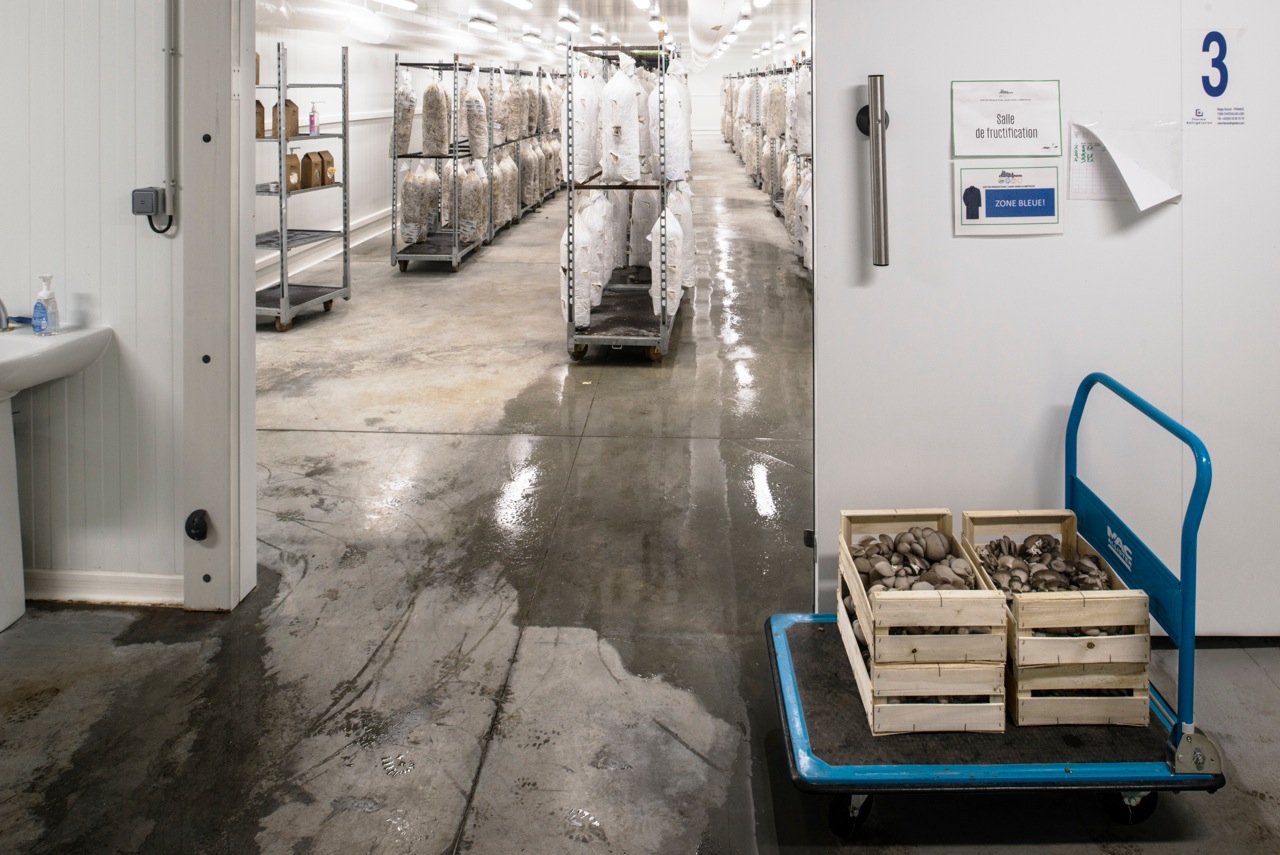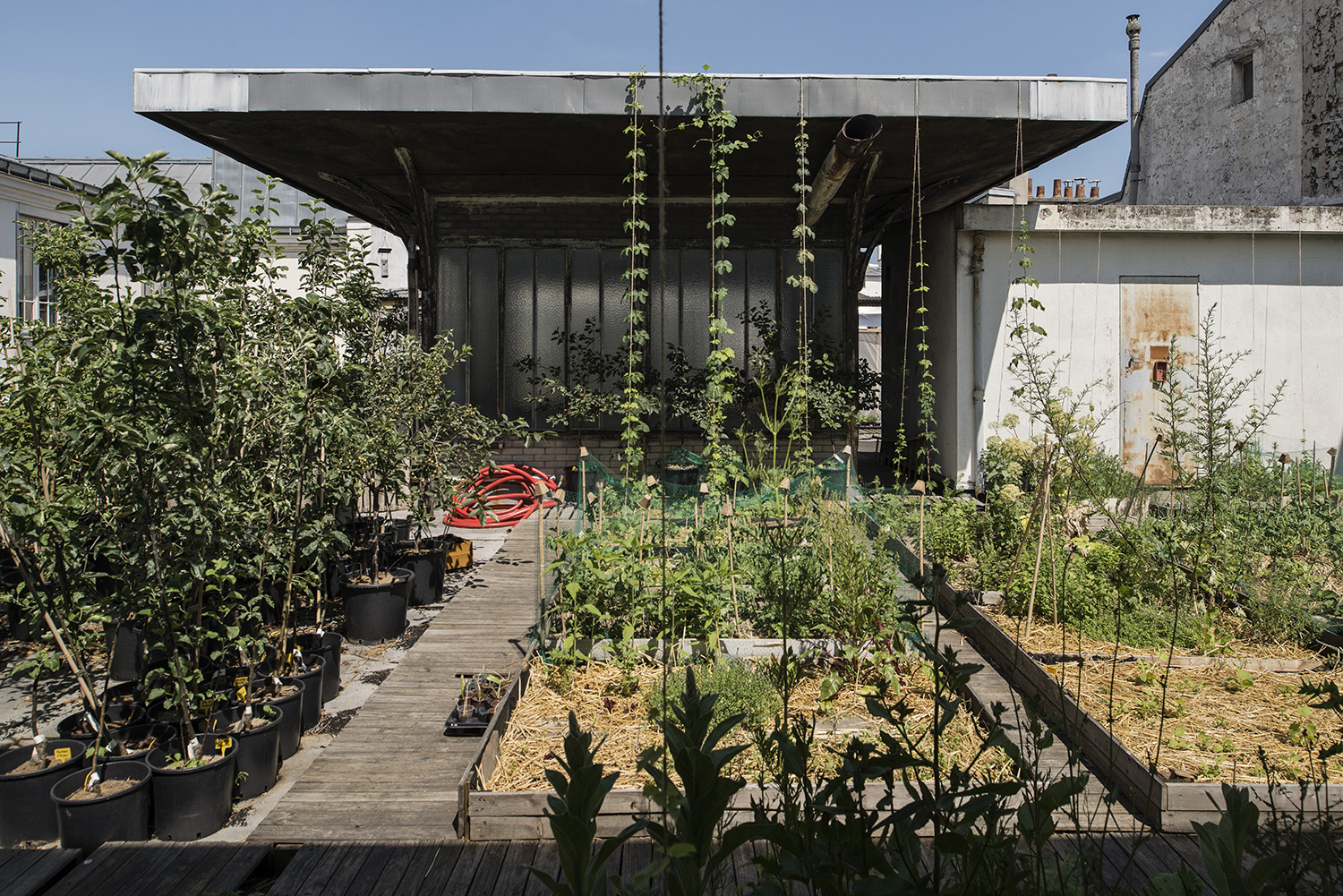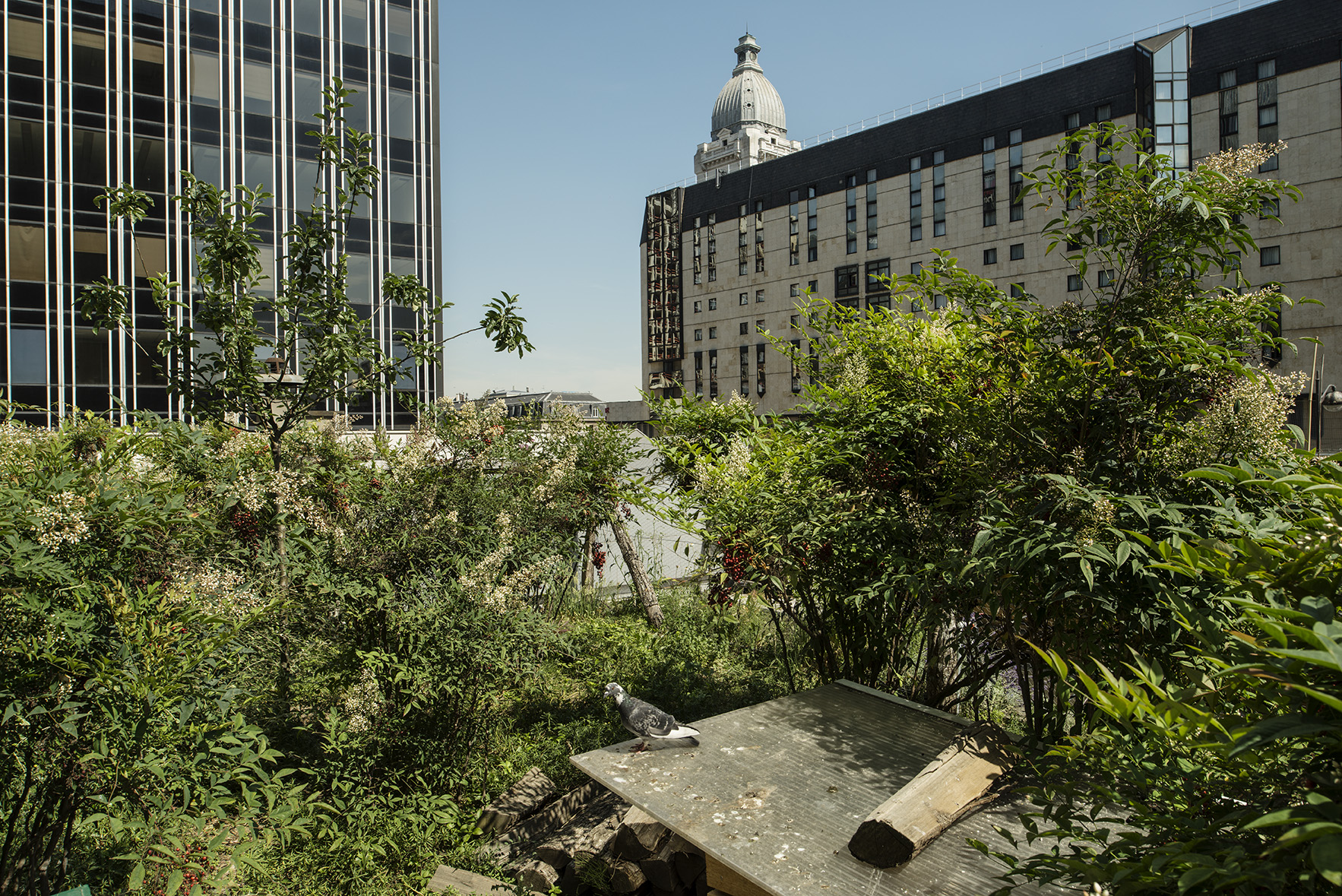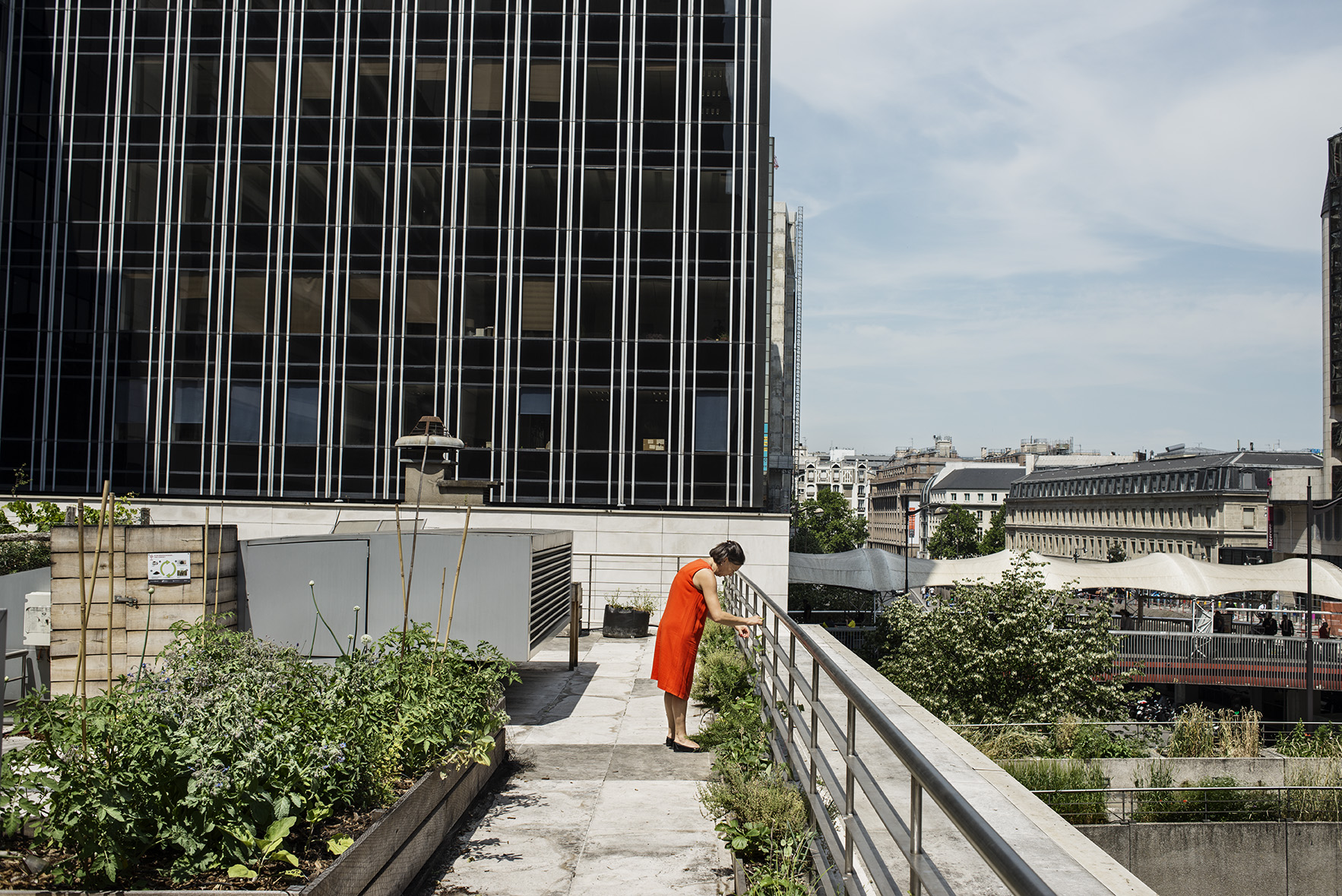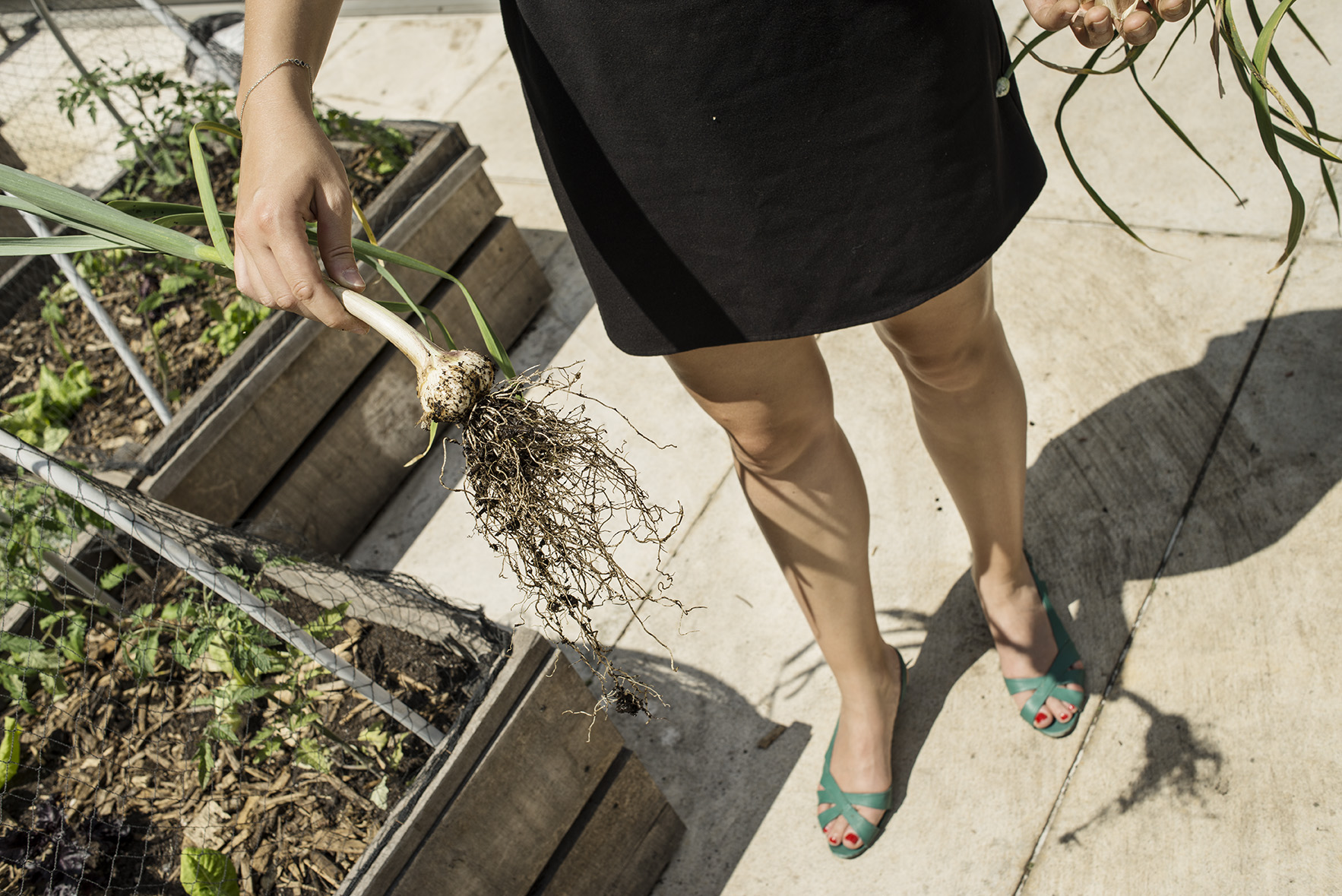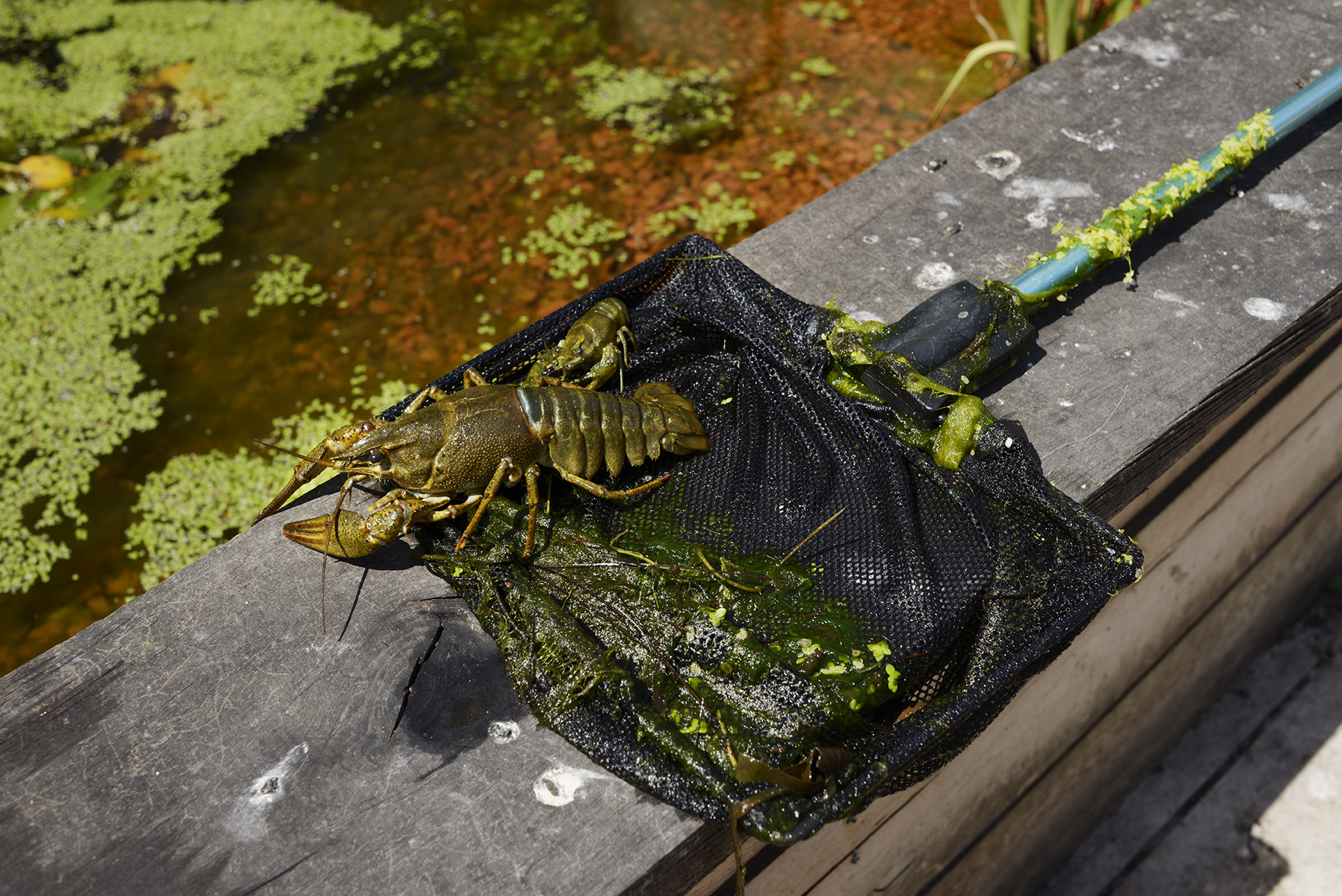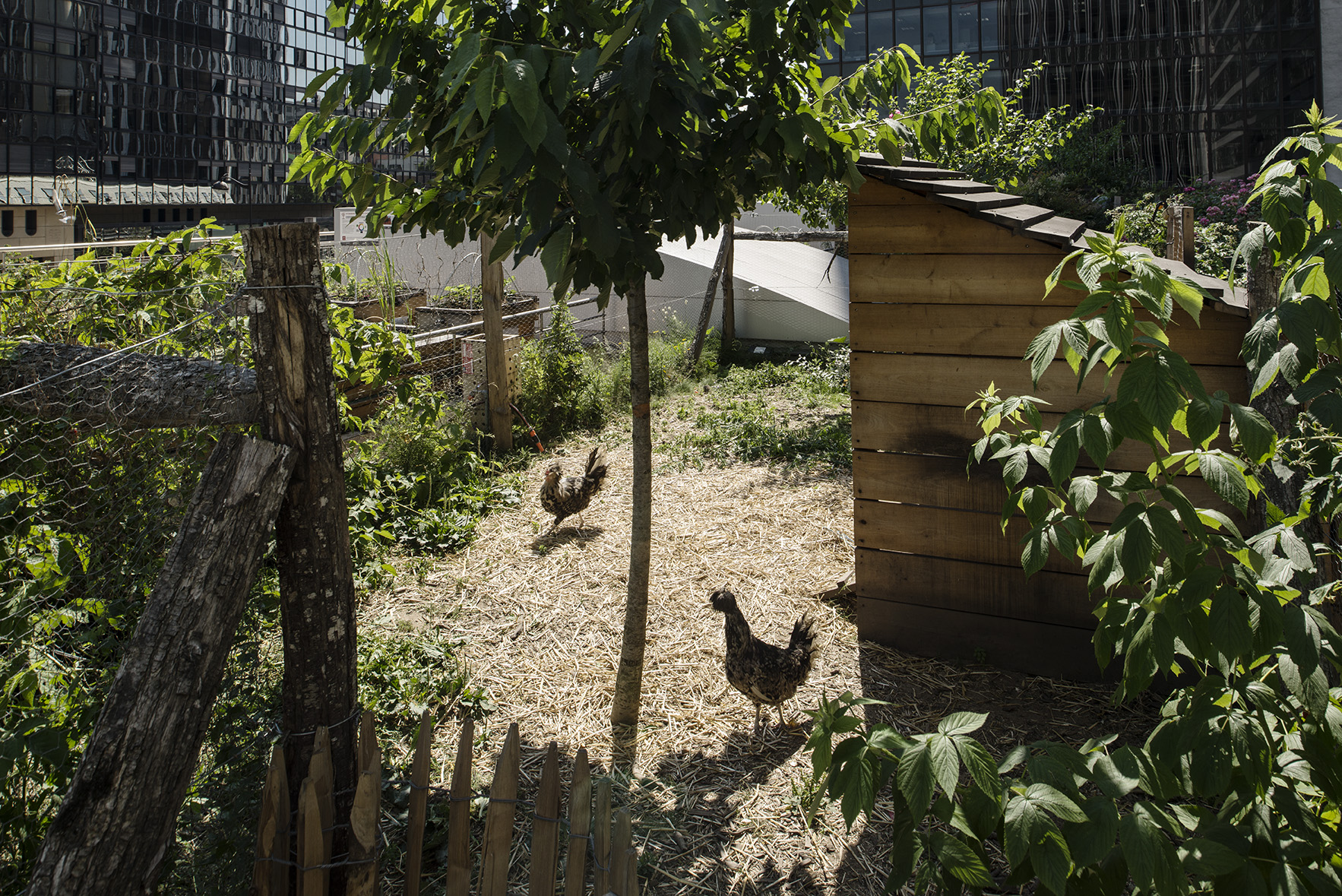PARIS AGRICOLE
Una serie sull’agricoltura urbana a Parigi. Il comune e il sindaco, Anne Hidalgo, hanno infatti avviato una campagna per incrementare gli spazi verdi. Giovanni Del Brenna segue da anni una ricerca sugli spazi urbani (di qualche anno fa il libro Ibidem sulle similitudini urbanistiche e spaziali delle grandi metropoli del mondo) ed è rimasto molto colpito dall’iniziativa parigina, soprattutto attratto dall’ossimoro insito nel concetto di “agricoltura in città”.
Del Brenna ha deciso quindi di documentare l’evoluzione del progetto ambientale urbanistico che vuole trasformare più di 100 ettari in aree coltivabili: dai tetti ai parchi abbandonati, ad aree industriali dismesse, dal centro alle periferie. Molte le aziende che hanno aderito all’invito del Comune e hanno ceduto parte dei loro spazi ad associazioni che li prendono in carico e ne seguono i processi di coltivazione, crescita e raccolto nelle diverse stagioni. L’età media di molti di questi agricoltori urbani è trent’anni.
La serie offre un ampio numero di fotografie di alcuni dei luoghi più interessanti coinvolti in questa particolare riqualificazione urbana:
AGRICOOL a company that developed an alternative method to grow Strawberries in containers (without using any pesticides, pollutant, GMOs). The containers take up the space of two parking lots and can be located anywhere in the city.
AGROPARISTECH On the foof top of AgroParisTech they carry out a research on Technosoils (light weight soils adapted for culture on roof tops) made of recycled materials of the city of Paris (debris from buildings, parts of plants and compost)
Laboratories : Agronomy University of Paris in collaboration with INRA French National Institute for Agricultural Research http://institut.inra.fr/enI analyzing level of pollution of the water. PhD students analyses the level of pollution in the water rejected from the growing boxes and level of pollution of the plants that grew in Paris. (As pesticides are prohibited in the Paris Area it’s important to know if urban pollution is found in plants that grow on rooftops).
BERGERS URBAINS based in the Parc Goerges-Valbon, La Courneuve, in the northern banlieue of Paris the Urban Sheperds have a herd of around 65 sheep. They produce high quality meat mowing the city lawns and cheering up the Blocks inhabitants with their presence.
BIODIVERSITERRE event organized by the City of Paris realized by Gad Weil, it’s a scenography that take the visitor into a trip in a agricultural world inside the city.
BOITE À CHAMPIGNON a company that produces high quality mushrooms grown on recycled coffee grounds and, these mushrooms are used by luxury Michelin stars restaurants. The company also produces boxes that can be bought by privates to grow mushrooms in their own house. This particular method is eco friendly, based on recycle, its technology can be used everywhere.
DEMONSTRATEUR RATP (RATP is the company of Paris public transport). In the headquarters of RATP near Gare de Lyon, they have a urban agriculture prototype of 250 m2. Made in collaboration with AgroParisTech and Cultures en Ville it allows to test different technics of urban agriculture, to study different technosoils made with recycled materials, and measure the impact of urban pollution on air, soil and cultures. This demonstrator is an example of circular economy, it has an aquaponics system that combines an aquaculture basin of 80 crayfish with hydroponics (cultivating plants in water) in a symbiotic environment, 4 hens are fed with bio-waste from the RATP cafeteria. Also people that work at RATP have the opportunity to visit the roof of the building and take part in the farming activities. The experience acquired will allow to evaluate what could be done on a bigger scale in other RATP’s existing sites and future projects.
HOUBLON AUX GRANDS VOISINS hop harvest in common spaces of Les Grands Voisins (temporary occupation of the ex-St Paul Hospital – experimentation of new types of social and ecological economy)
LA CAVERNE winner of a ParisCulteurs call for projects based in a underground parking. It is the first and only Organic Farm in Paris. They produce Mushrooms and Endive (the only two products that can have the Organic label being cultivated under ground)
LA GÉNÉRALE on the rooftop of the Artistic, Political and social Cooperative La Générale where they grow different type of agricultural products.
LA RECYCLERIE a multifunctional location focused on Eco-Responsability, it currently hosts a hop cropping. It has a Restaurant, a Urban vegetable garden and a workshop to repair and reuse everyday objects.
METRO – INFARM the first vertical indoor vegetable garden in a supermarket. It produces aromatic plants – grown with the hydroponics technique illuminated by LED. These products are packaged and sold in house. After two years of collaboration, METRO France and Infarm have installed 18 large glass gardens that cover a surface of 80m2 in the METRO warehouse in Nanterre for a production of nearly 4 tons per year! A record in Europe!
Each of these vegetable gardens contains 14 trays where about 40 plants grow, spread over 7 levels, with 13 varieties of aromatic herbs and 4 varieties of micro-plants. At first, they selected the most sold herbs: chives, basil, coriander, mint, dill or parsley. METRO’s will has always been to offer exceptional products to its customers and the offer has been enlarged to rarer varieties such as Thai basil, lemon basil, confetti coriander, golden frills mustard, watercress, kale… This selection may become wider in the future according to the specific requests of the customers.
PEAS AND LOVE • Hotel Yooma
on the rooftop of the Yooma Hotel in Paris you can rent a parcel that will be maintained by a Peas & Love farmer and you can just come and pick your vegetable garden production.
RÉSERVOIR DE CHARONNE • PAYSAN URBAIN
Le Paysan Urbain will build a greenhouse on top of a water tank of Eaux de Paris.
TOPAGER a company that design, organizes and runs projects of vegetalization and urban agriculture, like:
Opera 4 Saison – vegetable garden of 2500 m2 on the rooftops of the Opera Bastille.
Houblon Rue de Lyon – hop growing on the side of the Opera Bastille building in Rue de Lyon.
Houblon Levallois – hop on a Keys Properties’rooftop in Levallois, Project by Topager and artist Mattia Paco Rizzi




